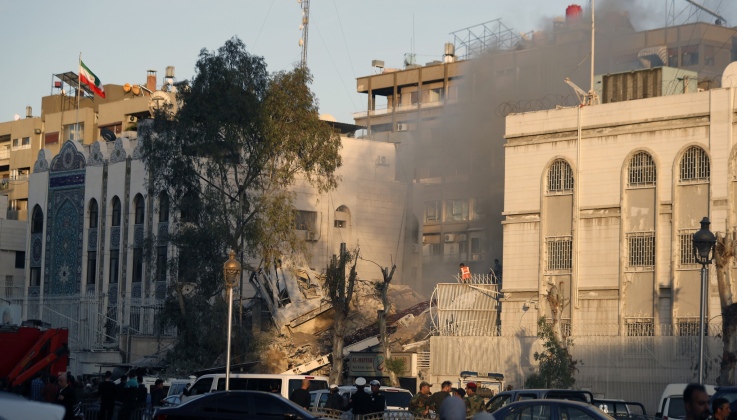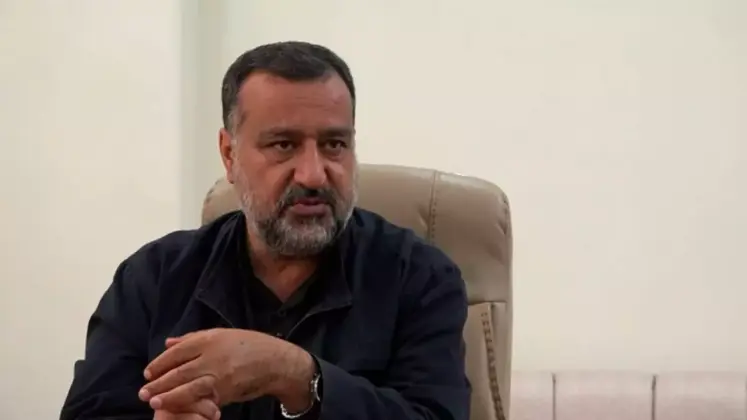News
Two Iranian Generals Killed in Israeli F-35 Strike on Damascus Diplomatic Building: Focus on Air Assassinations Continues
An Israeli air strike on an Iranian diplomatic building in Damascus on April 1 killed a brigadier general in the elite Quds Force of the country’s Revolutionary Guard Corps Mohammad Reza Zahedi, who had played a central role in overseeing and supporting paramilitary operations in support of the Syrian state as well as coordination with the Lebanese militia group Hezbollah. Ten others were killed in the Israeli attack, including several long serving diplomats and General Zahedi’s deputy General Haji Rahimi. Unconfirmed reports have indicated that a third general, Brigadier General Hossein Amirollah, who serves chief of general staff of the Quds Force in Syria and Lebanon, may have also been either among the victims or the intended targets of the strike. The attack appears to have been timed specifically to neutralise the senior Iranian military leaders, and was conducted using long range missiles fired from outside Syrian airspace, as has been the norm for Israeli attacks since 2018 following the loss of an F-16 fighter to Syrian air defences in February that year.

Following the attack Iranian Ambassador to the Syrian Arab Republic Hossein Akbari stated that the consulate in the Syrian capital had been hit by six missiles launched by F-35 fighters, with bodies at the time still being identified in the rubble. He pledged that Iran’s response to the attack would be “at the same magnitude and harshness,” without disclosing further details. Israeli F-35s have received particularly large quantities of spare parts and others support since October from NATO partners in the F-35 program, most notably the Netherlands and the United States, which has allowed units to maintain an uncharacteristically high tempo of operations. F-35s are reported to have engaged Syrian and Hezbollah targets as well as a range of civilian and military targets in the Palestinian Gaza Strip. Launching missiles from outside Syria did not test the F-35’s stealth capabilities against Syrian air defences, although with other Israeli fighters using near obsolete mechanically scanned array radars and much older data links the new aircraft were well optimised to conducting a time sensitive operation and maintaining very high situational awareness while doing so.

The latest Israeli strike on Syrian targets comes as Iranian backed paramilitaries in the region have gained growing successes launching drone, artillery and missile strikes on a range of Israeli and U.S. targets, with a drone strike on an Israeli naval base having also been successfully carried out by Iraqi militia groups on April 1. The attack on Damascus also follows Israeli air strikes on March 29 against Syrian Arab Army forces in the Aleppo governate near the Turkish border, causing close to 40 deaths. These attacks coincided with escalated offensives by Turkish backed Islamist militia groups against Syrian forces in the region, allowing jihadist militias on the ground to escalate their offensives as part of a general trend of parallel assaults on Syria being launched by Israel and Turkey.
While providing close air support to Turkish sponsored insurgents, Israeli strikes have focused on neutralising key military and political leaders. Recent attacks of this nature have included the killing of Revolutionary Guard Corps Brigadier General Seyed Razi Mousavi, a longtime advisor for local forces in Syria, in a precision strike on Damascus on December 25. It also included the assassination by drone strike of Hamas deputy leader Saleh Al Arouri in the Lebanese capital Beirut on January 2. Israel also provided intelligence support to the CIA operation to assassinate Iran’s most senior and decorated military official General Qasem Soleimani on January 2, 2020, with the country’s intelligence agencies and its air force between them having been credited with multiple successful assassinations between that time and the escalation of regional hostilities in October 2023.












